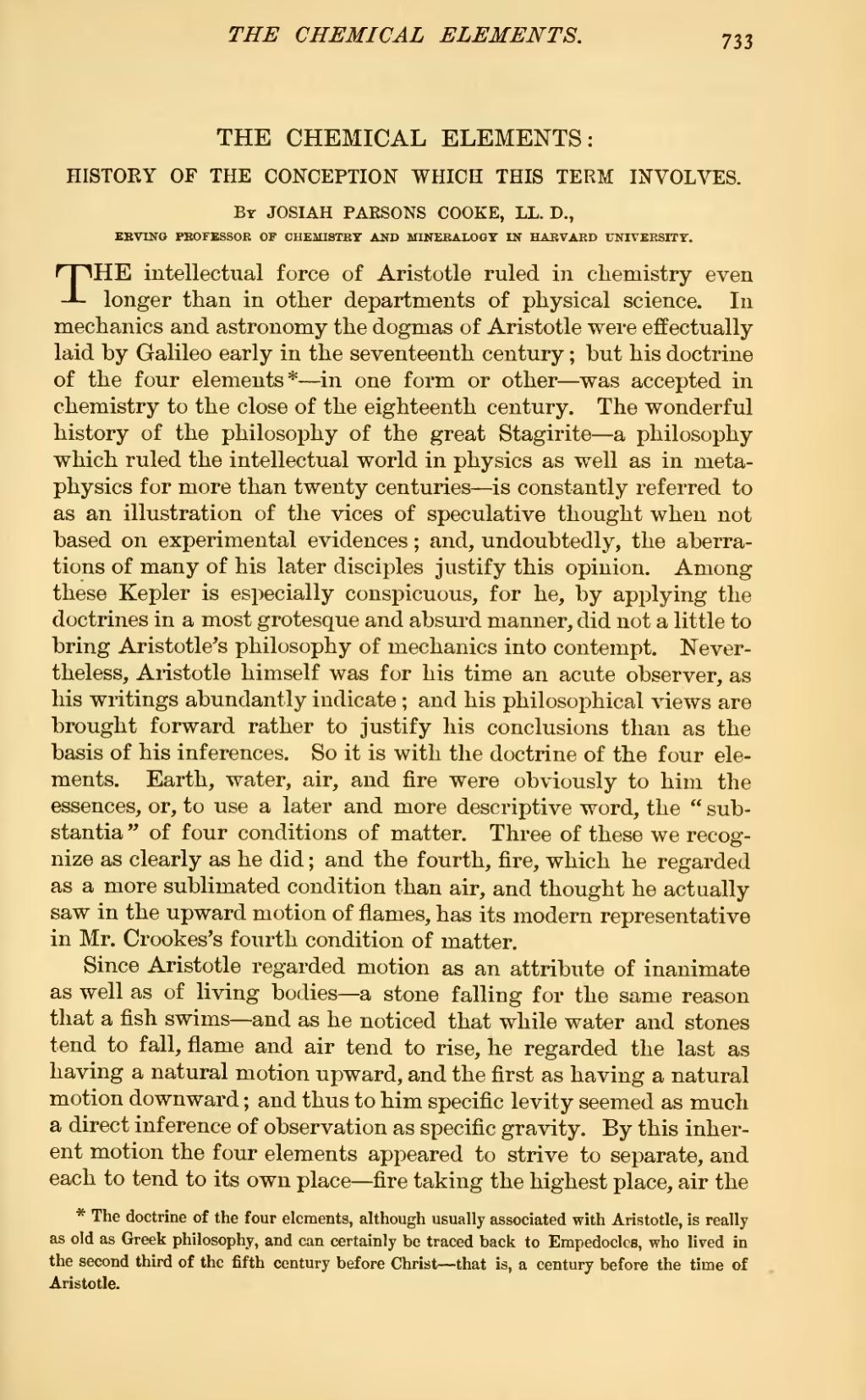| THE CHEMICAL ELEMENTS: |
HISTORY OF THE CONCEPTION WHICH THIS TERM INVOLVES.
By JOSIAH PARSONS COOKE, LL. D.,
ERVING PROFESSOR OF CHEMISTRY AND MINERALOGY IN HARVARD UNIVERSITY.
THE intellectual force of Aristotle ruled in chemistry even longer than in other departments of physical science. In mechanics and astronomy the dogmas of Aristotle were effectually laid by Galileo early in the seventeenth century; but his doctrine of the four elements[1]—in one form or other—was accepted in chemistry to the close of the eighteenth century. The wonderful history of the philosophy of the great Stagirite—a philosophy which ruled the intellectual world in physics as well as in metaphysics for more than twenty centuries—is constantly referred to as an illustration of the vices of speculative thought when not based on experimental evidences; and, undoubtedly, the aberrations of many of his later disciples justify this opinion. Among these Kepler is especially conspicuous, for he, by applying the doctrines in a most grotesque and absurd manner, did not a little to bring Aristotle's philosophy of mechanics into contempt. Nevertheless, Aristotle himself was for his time an acute observer, as his writings abundantly indicate; and his philosophical views are brought forward rather to justify his conclusions than as the basis of his inferences. So it is with the doctrine of the four elements. Earth, water, air, and fire were obviously to him the essences, or, to use a later and more descriptive word, the "substantia" of four conditions of matter. Three of these we recognize as clearly as he did; and the fourth, fire, which he regarded as a more sublimated condition than air, and thought he actually saw in the upward motion of flames, has its modern representative in Mr. Crookes's fourth condition of matter.
Since Aristotle regarded motion as an attribute of inanimate as well as of living bodies—a stone falling for the same reason that a fish swims—and as he noticed that while water and stones tend to fall, flame and air tend to rise, he regarded the last as having a natural motion upward, and the first as having a natural motion downward; and thus to him specific levity seemed as much a direct inference of observation as specific gravity. By this inherent motion the four elements appeared to strive to separate, and each to tend to its own place—fire taking the highest place, air the
- ↑ The doctrine of the four elements, although usually associated with Aristotle, is really as old as Greek philosophy, and can certainly be traced back to Empedocles, who lived in the second third of the fifth century before Christ—that is, a century before the time of Aristotle.

